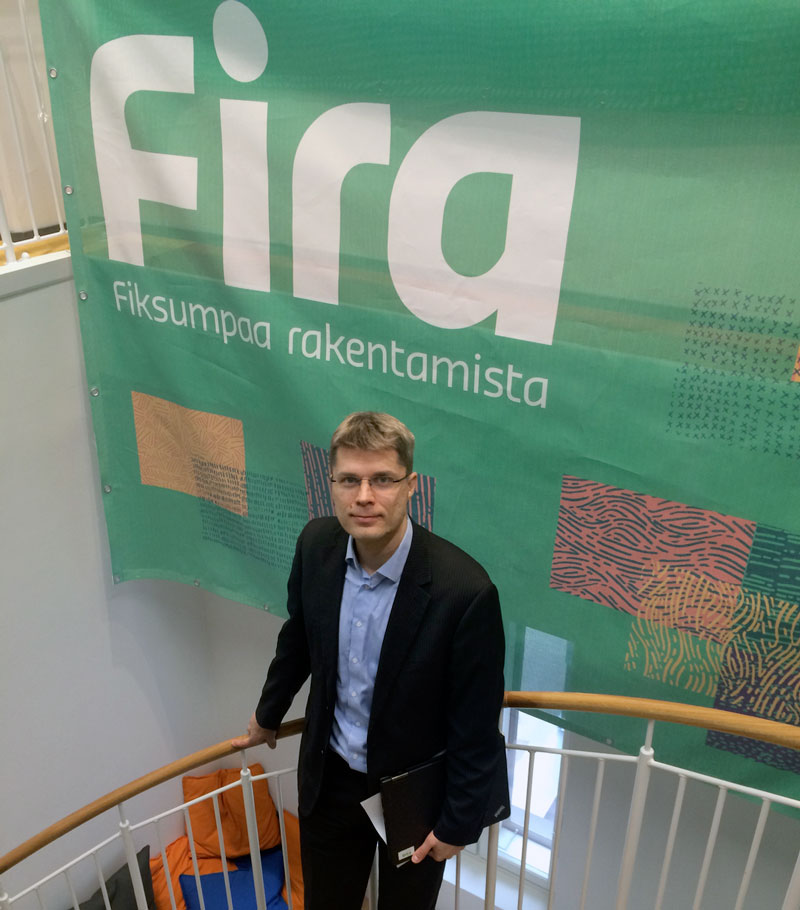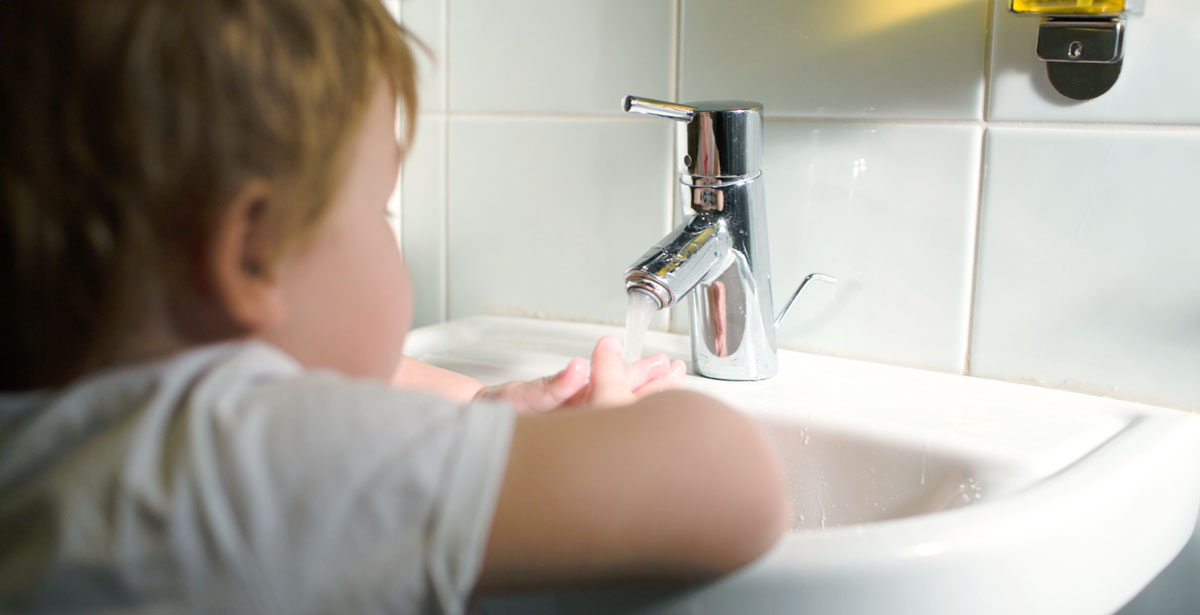Service productization can help construction companies do better business and have more satisfied clients.
AEC Business had the opportunity to interview Sami Kokkonen, CEO of Fira Palvelut, a pipeline renovations company based in Vantaa, Finland, to learn how they productized their service and the benefits they achieved.
Can you say a few words about your company?
We are a pipeline renovations company that started in 2010. Today we have 45 employees. We consider pipeline renovations to be big projects with big impacts on families and their homes. We serve about 1,000 families each year.
In my opinion, the construction industry is in a difficult place – the clients are not happy and productivity is very low. That’s not the story we want to tell our kids, so we want to do things better and make a difference and improve this situation. Our mission is to build a smarter society. We believe that if we do things smarter it will be better for everyone.
What is your service, what is the problem that it is solving and for whom?
 Our main product is pipeline renovations. We separate our client into 3 parts and consider each part very carefully: (1) the big building (technical matters) + (2) people’s homes (this is the part we have researched a lot) + (3) the individual.
Our main product is pipeline renovations. We separate our client into 3 parts and consider each part very carefully: (1) the big building (technical matters) + (2) people’s homes (this is the part we have researched a lot) + (3) the individual.
Home is very important to all of us and we researched that if people have been living in a home for more than 5 years, it becomes a part of their identity. So if you let somebody come into your home, it has a high emotional impact, and can be quite traumatic. And this is something that we really keep in mind when we serve our clients. We don’t think as a service business or as a construction business. We don’t want to be production-oriented – we want to be customer-oriented.
What is unique or exceptional about your service?
The unique part about us is that we don’t see pipeline renovation as a B2B business. We see it as a B2C business. For us the final client matters and we build processes that are adjusted to their needs. For example, we built an online portal where the homeowners can customize their projects by choosing the colors, the tiles, etc. and that gives them a sense of participation in the process. It is a great tool because clients like to use it and in a way while using it they are also doing our job. So it’s a win-win situation.
Can you briefly walk us through your service process?
- Pre-planning time, when we have workshops and meetings with the housing company and the homeowners. This lasts about 4 months.
- Planning time, when we plan all the technical details. This lasts about 6 months.
- Construction time, which varies depending on number of apartments in the building.
We provide information and tools for the housing company and the individuals at every step of the way. Our service engineers build 3D models that allow them to visualize the final result and we have constant opportunities for communications so they can ask questions and feel informed.
How did you develop and productize your service?
We received funding from Tekes for an R&D project and we focused on finding the real needs of the clients and how they really see the entire process of renovation. We identified areas where we could make a difference in their experience. We built the front office and then the back office.
Before, as a pipeline renovations company, you would come in halfway through the process, after all the planning and pre-planning was done, and you would find that your client was already in a bad mood before your work even began, because the process before you was so bad. So we decided to take charge of the entire process. We used our existing expertise, hired new people where we needed new knowledge, and offered clients a full service from the very beginning, ensuring a much better experience.
What benefits do your client and your company get from a productized service?
In addition to economic benefits, productization allowed us to streamline our operations, find ways to improve our productivity and have a better relationship with our clients. It has also changed the way we market ourselves, as we no longer have to participate in pricing competitions.
The biggest benefits for the client is the shorter time that it takes to complete the project, which also saves the client money, and the easier process of buying and operating since they have to settle everything with just one company. This also gives the house occupants a better peace of mind, which results in higher satisfaction ratings.
What have you learned from developing and delivering your service? What does it take to be successful?
It’s very easy to fall into the production mindset and very difficult to truly put yourself into the clients perspective. But unless you can fully do that you cannot be successful. Once you learn to really think from a customer’s point of view, you will always find new opportunities to do things better.
Any words of advice for other companies considering productization?
If you think of productization as a model, at the very core are always the client needs. After that there are three parts. The front office: how the client sees things and how he wants to access the solution. The back office: your process and how you can do things in an efficient way. And the tools: platforms, portals or any other online tool that you will use.
What are your future plans?
Digitalization will dramatically change the way people live and work, and business models in the construction industry will change as well. Our dream is to do for the construction industry what AirBnb did for apartment renting – we want to build a platform that could enable construction projects anywhere in the world. To do this we are getting experiences in different parts of the process, learning how to do things in a world-class way and working with smart start-ups. This is a goal that drives us everyday and also helps us hire very talented people who believe in the idea as much as we do.
View the original article and our Inspiration here


Leave a Reply